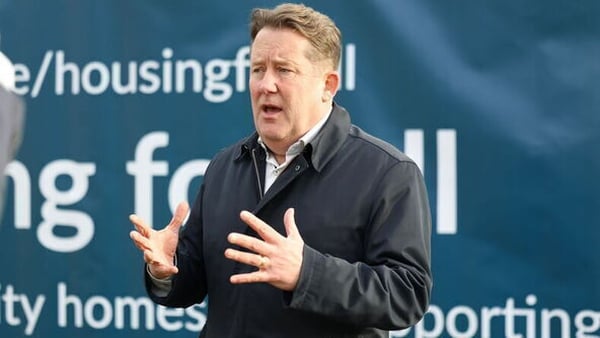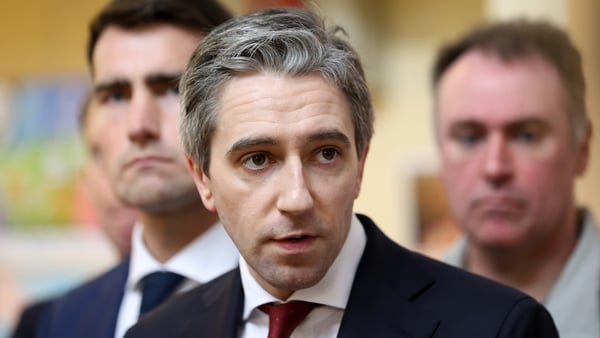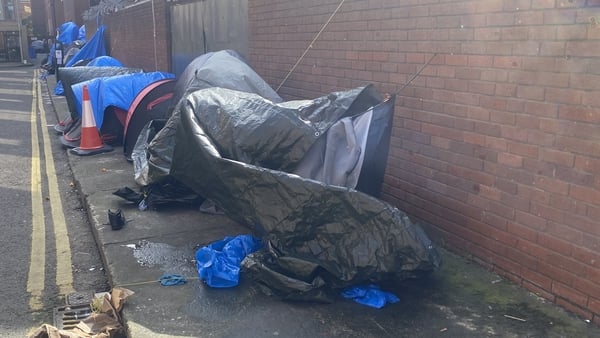Minister for Children Roderic O'Gorman has said he hopes to introduce changes to the National Childcare Scheme next year.
He was responding to concerns that it discriminates against the most vulnerable.
Mr O'Gorman met with community childcare providers protesting outside of Leinster House today.
Campaigners say the State's poorest children will miss out on after-school places, as the scheme favours the children of working parents.
Labour Senator Marie Sherlock, who was involved in organising today's protest, said: "What this scheme fails to recognise is that if you are in a very challenging circumstance, if you are in a very vulnerable circumstance, you need the guarantee of knowing that you have affordable childcare first, even before you can begin to think about getting a job."
The National Childcare Scheme was introduced on 20 November 2019.
Under the scheme a universal subsidy that is not means-tested subsidises childcare at a rate of 50 cent an hour up to 45 hours a week.
However, it is the means-tested scheme that is more relevant in this instance.
It subsidises childcare for children up to 15 years of age.
The scheme is for families with an income of less than €60,000 a year.
Under the scheme parents who work, are studying or who are in training, qualify for more subsidised hours than those who do not - 45 hours vs 20 hours.
The hours a child spends in school are included in these allocated hours, and so the child of a parent who is not working may have few, if any subsidised hours left to avail of afterschool.
Campaigners say that community after-school clubs offer homework supports, as well as nutritious meals and a safe and supportive environment to vulnerable children.
We need your consent to load this rte-player contentWe use rte-player to manage extra content that can set cookies on your device and collect data about your activity. Please review their details and accept them to load the content.Manage Preferences
Under the previous Community Childcare Subvention (CCS) Programme, childcare subsidies were available to parents with a medical card, or who were on certain social welfare payments, as well as those in low paid employment or in education.
Children who were on the CCS programme prior to the introduction of the NCS in late 2019 have remained on that scheme, but newcomers must go onto the new scheme.
"75% of our funding is going to be cut so its nearly all the kids we have," Anthony O'Brien who works for the Robert Emmet Community Development Programme told RTÉ News.
Minister O'Gorman, who met with protesters, said that an independent review of the National Childcare Scheme's first year in operation had been broadened to consider its impact on services in disadvantaged areas, and that report was due soon.
"I would hope that we would be able to bring some solutions next year to deal with the difficulties that children in these services are facing in terms of accessing the full range of childcare hours," Mr O'Gorman told RTÉ News.
The minister said he did not want to "speculate on what the review... is going to bring forward".
Mr O'Gorman said that the Expert Group which is looking at funding childcare is exploring the idea of a DEIS style model, and that it too is due to report in the coming months.
"That is something that I am going to be looking very closely at, in terms of providing additional supports services in areas of high disadvantage," Mr O'Gorman said, "but that's going to take a number of years I think to fully implement that, and I am conscious that we are going to need a solution to the particular issue these services are raising in the near-term".





